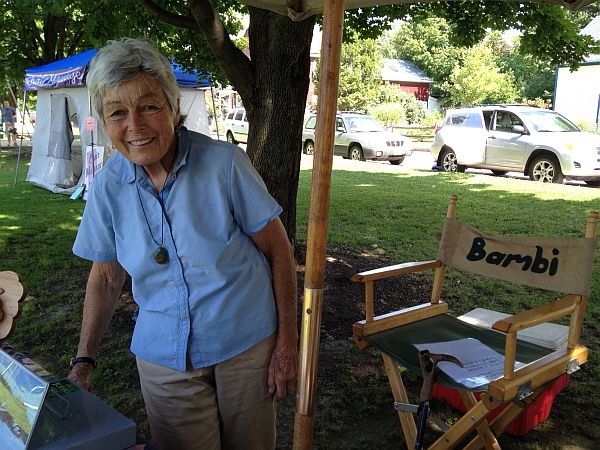
Working on a farm can be dangerous. The Occupational Safety and Health Administration estimates that every day, more than 240 agricultural workers suffer an injury that results in lost work time.
Vermont does not keep statistics about farm accidents, but there is a program that helps farmers who have been hurt on the job, or diagnosed with a disability that interferes with their work.
It all started with Merton Pike. In 1974, just before his fiftieth birthday, he had a terrible accident on his family farm in Stowe. It was wintertime. The snow was deep. He was spreading manure when the pin connecting the tractor to the spreader broke. When he got out to investigate, the tractor rolled backward over his legs.
"And I was pinned there," the 92-year old Merton recalls, sitting in the tidy kitchen of his house up the road from the barn.
In the hospital, doctors had to amputate a foot and most of the other leg below the knee. But Pike never considered abandoning farming.
"I didn’t know how I was going to do it but it was my life," he says.
His soldier son came home from Vietnam to help run the farm. Pike made his own tractor hand controls out of scrap metal. And he started support groups for other disabled farmers, keeping up their spirits and helping them retrofit their machinery.
He was sowing seeds for a program called AgrAbility now jointly operated by the UVM Extension Service and the Vermont Center for Independent Living. It’s for farmers who don’t want to let disabilities rob them of their livelihoods.
"Yes, we need to keep them going," says Tom Younkman. The AgrAbility specialist based in Morrisville says the stresses of farming in a weak economy can set the stage for serious accidents.
"It is depressing and what’s going to happen here is that you’re going to get tired, you’re going to get careless and get hurt on a piece of equipment that you’ve been using for years and years and all of a sudden you’ve just made a stupid mistake, and then you’ve lost a leg or an arm or turned a tractor over," Younkman says.
Younkman is trying to prevent those accidents by providing farmers with publicly funded roll over bars for their tractors. He helps injured clients retrofit machines with hand controls, and steps. He connects some to mental health services. But most of all, Younkman says, what disabled farmers really need is to meet each other.
And Merton Pike, the double amputee from Stowe, is happy to be a mentor. He helped Bambi Freeman, a sheep farmer with multiple sclerosis.
"He comes driving up my driveway with his Mercedes with hand gears and he says ‘Come on, we’re going for a ride.’ I say ‘really?’ He says ‘yep, come on,’ and puts me in the driver’s seat," Freeman laughs.
She drove Pike’s Mercedes home. Then Younkman, of AgrAbility, helped her find money to replace a barn ladder with steps, install fire detectors, and put roll bars on her tractor.
As she sells lamb at the Waterbury farmer’s market, Freeman says she believes working hard raising sheep has actually kept her MS under control.
"Absolutely," she says, as she winds the stiff crank of the shade umbrella over her table.
"I have no doubt in my mind. But I am bound and determined to go out feet first off the farm because I just can’t see myself doing anything else. I get up every morning and just look forward to every day. Never boring."
And now AgrAbility is branching out, working with veterans hurt on the battlefield–not just to return to agriculture, but to become first-time farmers. Its support group for veterans with traumatic brain injury has begun meeting in St. Johnsbury.